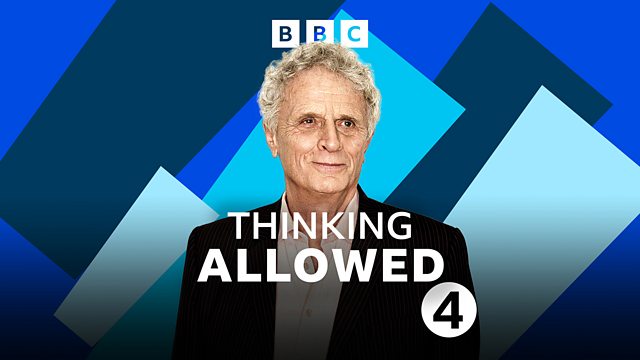Welfare reform; Crime in the Armed Forces
Laurie Taylor looks at a historical study into criminal offending by the British armed forces. Also, the impact of welfare reforms.
Crime in the Armed Forces - Laurie Taylor talks to Emeritus Professor of History, Clive Emsley, about his pioneering, historical study into criminal offending by members of British armed forces both during and immediately after the two world wars of the 20th century, and concluding in the present day.
For a quarter of the 20th century, the UK had large conscripted armed forces and it is these services, and in particular the Army, that are the principal focus of this study. Emsley argues that the forces "reflect the society from which they come, both the good and the bad", pointing out that it's predominantly made up of younger men, the social group that commits the most crime. He also examines two popular assumptions about crime and war; namely, that crime decreases when wars begin as young men - those likeliest to commit crimes - are swept up into the forces; and that crime goes up at the end of war as men brutalised by combat returned to the civilian world but, unable to cope with 'peacetime', engage in crime and violence. Dr Deirdre MacManus, from King's College, joins the discussion, having recently completed a study into the relationship between combat experience and violent crime amongst British soldiers returning home from Iraq and Afghanistan.
Also, Ruth Patrick's research into the lived experiences of welfare reform. She's interviewed a range of out of work benefits claimants between 2011 and 2013. Talking to single parents being moved from Income Support onto Jobseeker's Allowance, disabled people waiting to be migrated off Incapacity Benefit and onto Employment and Support Allowance, and young jobseekers experiencing the new Jobcentre/Work Programme and sanctions regime, her study gives a unique insight into the impact of a revolution in 'welfare' provision on 'real' people.
Producer: Jayne Egerton.
Last on
Ruth Patrick
Doctoral Researcher School of Sociology & Social Policy, University of Leeds
Μύ
〶Δ
Find out more about
〶Δ
Μύ
Abstract:presented at the on July 9th 2013
Clive Emsley
Professor in the Department of History at the Open University
Μύ
〶Δ
Find out more about
〶Δ
Μύ
Soldier, Sailor, Beggarman, Thief: Crime and the British Armed Services since 1914Publisher: OUP Oxford
ISBN-10: 0199653712
ISBN-13: 978-0199653713
Deirdre MacManus
Forensic Psychiatrist and Clinical Lecturer, King's College London
Μύ
Μύ
Find out more about 〶Δ
Μύ〶Δ
〶Δ
Summary:Dr Deirdre MacManus, Kimberlie Dean, Margaret Jones, Roberto J Rona, Prof Neil Greenberg, Lisa Hull, Prof Tom Fahy, Prof Simon Wessely, Nicola T Fear
The Lancet, Volume 381, Issue 9870, Pages 907 - 917, 16 March 2013
doi:10.1016/S0140-6736(13)60354-2
Ethnography Awards
Thinking Allowed in association with the British Sociological Association announces a new annual award for a study that has made a significant contribution to ethnography: the in-depth analysis of the everyday life of a culture or sub-culture.
Μύ
ο»ΏAre you involved in social science research and completing or will have completed an ethnography this year? The Award is open to any UK resident currently employed as a teacher or researcher or studying as a postgraduate in a UK institution of higher education.
Μύ
An entry should be a completed ethnography, a qualitative research project which provides a detailed description of the practices of a group or culture. Any sole authored book or peer reviewed research article published during the calendar year of the award will be eligible.
Μύ
The judges for the Award are Professor Dick Hobbs, Professor Henrietta Moore, Dr Louise Westmarland, Professor Bev Skeggs. The Chair is Professor Laurie Taylor. (Please do not contact any judges directly).
Μύ
Μύ
Broadcasts
- Wed 26 Jun 2013 16:00Βι¶ΉΤΌΕΔ Radio 4
- Mon 1 Jul 2013 00:15Βι¶ΉΤΌΕΔ Radio 4
Explore further with The Open University
Βι¶ΉΤΌΕΔ Thinking Allowed is produced in partnership with The Open University
Download this programme
Subscribe to this programme or download individual episodes.
Podcast
-
![]()
Thinking Allowed
New research on how society works


